Encouraging Independence In Students with SEND
Developing Independence at School and Home
It is essential we educate our children for the life they will lead as adults. For safety, wellbeing and the ability to control their direction in life. Independence will be a sliding scale for many children but we need to enhance this wherever possible. Independence skills are a key area where parent/teacher partnership is essential. Teaching a student with special needs to be as independent as possible will have positive ramifications for life.
1. Communication is Key
The core focus of any effort to enhance and encourage independence is to ensure your child has a functional communication system. In this context functional means a way to be understood by others and understand responses. A child will need to communicate their likes, dislikes, and requests, to ask questions and ask for help. Both high and low-tech augmentative and assistive communication (AAC) systems are available to support this.
It is important that their communication system follows the child. Often adults who know that child well and can predict what they want will not use additional systems. This is unfair to the child as they grow. Everyone needs a system they can use with unfamiliar people. It is not about socially acceptable communication or making children speak but ensuring they can become confident communicators in different situations. If you cannot communicate basic needs and wants you cannot access places, things etc without support.
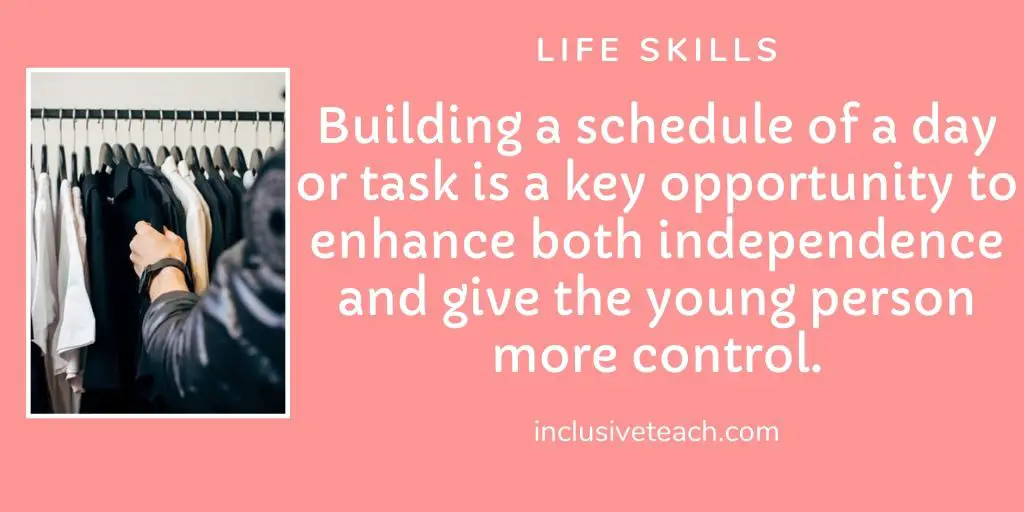
2. Visuals, Schedules and Routines
Many children with SEN also have issues with executive functioning. This means organising their day and required tasks or elements within that task can prove an additional challenge. Visual schedules, lists and organisers can all help with retrieval practice. I would reinforce that the schedule needs to be for them. It is an easy trap to fall into for the adult to take ownership of putting these together each day. No!! Building a schedule of a day or task is a key opportunity to enhance both independence and give the young person more control. The idea is to reduce the amount of prompting a reminding the young person needs to complete that task.
3. Asking for help
To promote independence a person must be taught how to ask for help. This reduces frustration and increases the likelihood that a task will be completed. We ask for help all the time, it is a human action. To teach a child independence you need to provide and model requesting help. Not as a first port of call but linked to perseverance. Recommended resources include a “help card” or structuring activities that challenge and rely on problem-solving skills. Over-supporting is an easy trap to fall into. By opening packets, finding resources and putting clothes away etc all you do is prove you are better at the task than them. As long as it doesn’t cause distress don’t complete daily tasks for someone with the capability to do it for themselves.
4. Prioritise Health and Hygiene
Self-care activities should be central to a child’s routine both at home and school. Choosing appropriate clothing, bushing teeth, and combing hair. These skills should be encouraged as early as possible in life to ensure the child both sees the value and picks up the needed skills to complete these tasks effectively. It is deficits in this area of the child’s independence that can have the biggest safeguarding and child protection impacts. If a child relies on an adult to complete personal care they are vulnerable to abuse, if we can reduce that even slightly we improve their quality of life.
5. Create opportunities for Independence within lessons
So many Life skills naturally lend themselves to being practised at school. An independent child should be able to find the resources needed for a task in lessons. Hand washing and toilet routines are easy to build in. Timed tasks and activities give an awareness of planning for activities outside of school and into future career pathways. Colours can be taught through matching socks. Division through making Pizzas. The changes are endless.
6. It’s all about the money
Learning how to use money, cash, online and card are all essential skills for all aspects of life. Money recognition, opportunities such as snack time to practice etc. Please use real coins from the start! Financial abuse is a real worry for many as they go on to supported or independent living. Teach them how to check balances, and where to find trusted support. Buying online, the price of apps etc all need to be taught to reduce the likelihood of debt as the child moves into adulthood. Independently using their money is the best way to learn.
7. Access The Community: Get out and about
School and other settings can create bubbles. They need to be secure and safe places to learn and develop. This can lead children to struggle when it comes to accessing community facilities, activities and shops etc. Journey planning and transport training are essential elements of this. Maths lessons for older children should involve reading timetables and using apps to plan journeys. When planning an outing or trip encourage the children to arrange it. Look at the logistics and other considerations. Where possible look for amenities the children can walk to and access. Why not take the bus or walk instead of using the school minibus?
8. Introduce group activities.
I am a great believer in not forcing social interactions on people. Finding a way to connect with others naturally can reduce dependence on an adult to lead leisure activities. Building opportunities to share and explore special Interests can be the spark for this. Supporting staff must stop encouraging only interaction they think is appropriate. Yes you can be sociable sharing a space, occasionally looking at what each other is doing. Group activities don’t have to be structured, high-energy situations. It can help to show the value of interaction. Games and shared play are better when encouraged and designed around interests rather than when forced and designed around the needs of the adults.
9. Stop Hovering Let Them Be Independent
Just back off and give people space to explore. If someone is always taking over or saying you are wrong you will give up, not bother. Mitigate risks by ensuring appropriate resources are supplied i.e. safe tools and cutlery then let people explore and make mistakes. That is part of learning. Okay, you may like your carrots cut in batons but someone else may not.
10. Prioritise Life and Work Skills.
Many special schools already build independence and life skills into their curriculum. As children get older it is important that academic work is balanced with encouraging independence and providing the multitude of skills the child will need on leaving school. Literacy lessons should focus on following instructions and finding and evaluating information online. Writing for a purpose. The aim may not be for all to obtain employment but to provide the skills to lead a meaningful and fulfilling life. Children need to develop the skills to advocate for themselves. Recognise when they are being harassed, bullied or controlled. They need a voice, control and understanding of the world around them.
10 Activities To Encourage Independence for Children with SEN
Here are 10 learning activities to encourage independence for children with special needs at home or school.
Cooking/baking:
- Involves motor skills like mixing, pouring, scooping
- Teaches safety with appliances, utensils and hot surfaces
- The child can practice following instructions from recipes
- Gives a sense of accomplishment from making something edible
Doing chores:
- Teaches responsibility for helping at home
- Allows practice of skills like sweeping, wiping, folding laundry
- Boosts self-esteem by completing tasks
Playing games:
- Promotes social and communication skills by interacting with others
- Teaches patience, taking turns and following rules
- Develops problem-solving and strategic thinking
Independent Dressing:
- Mastering dressing is a key life skill
- Provides a sense of empowerment from being able to dress independently
- Builds confidence over time as skills improve
Brushing teeth:
- Learning proper techniques prevents cavities and gum disease
- The child can gain a habit of brushing regularly twice a day
- Boosts self-care and hygiene skills
Combing/brushing hair:
- Increases grooming ability and personal care skills
- Child may feel pride from styling hair independently
- Parents can offer guidance as needed to develop routine
Carrying a backpack:
- Helps build muscle strength, coordination and posture
- Prepares child for carrying materials to and from school
- Distributes weight evenly to avoid shoulder or back strain
Walking to familiar places in the community:
- Allows child to practice navigating routes independently
- Boosts confidence in getting places on their own
- Promotes a sense of freedom and autonomy
Helping with technology:
- Develops tech skills that are essential in today’s world
- Children can gain abilities to access useful apps for learning, entertainment, communication
- Simple devices allow for autonomy while managing risks
Practising money skills:
- Teaches basic skills for handling money independently as an adult
- Children can gain experience making simple purchases
- Gives practice counting and identifying coins and bills


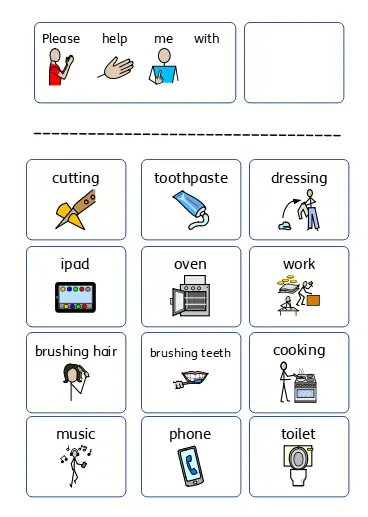
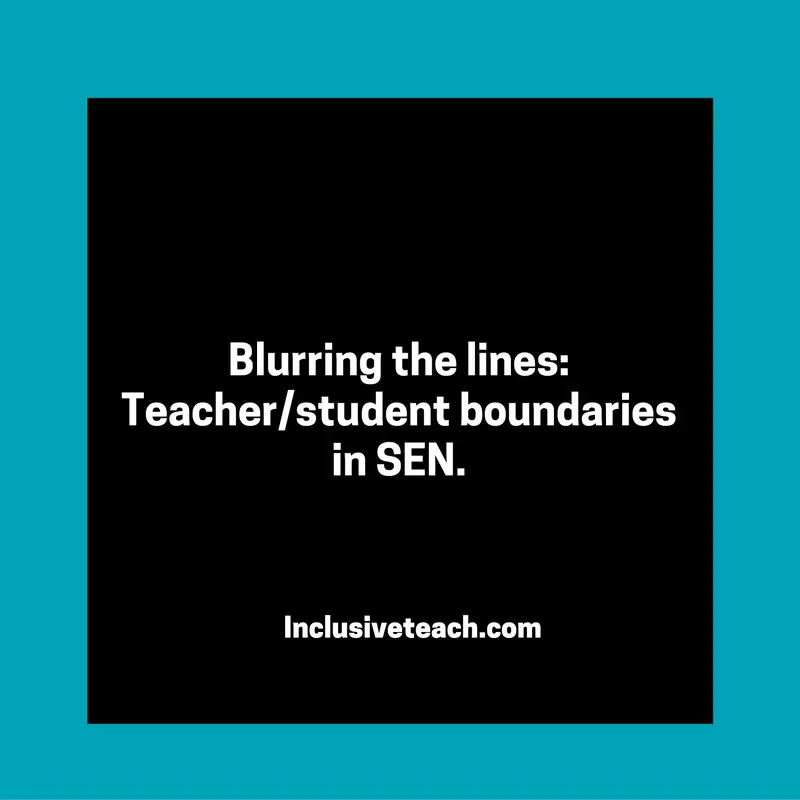

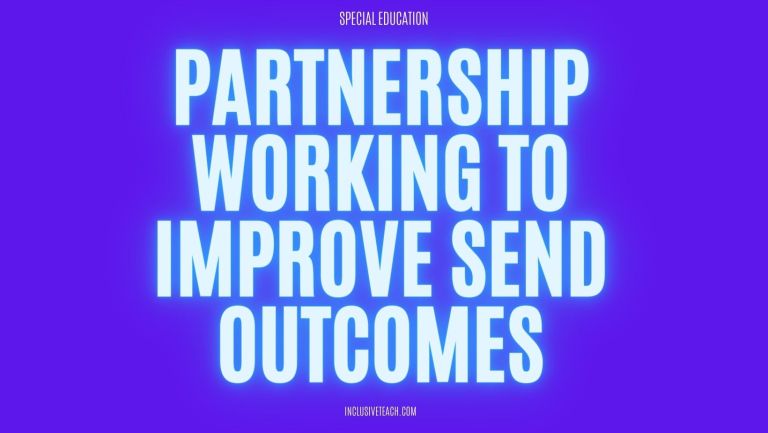

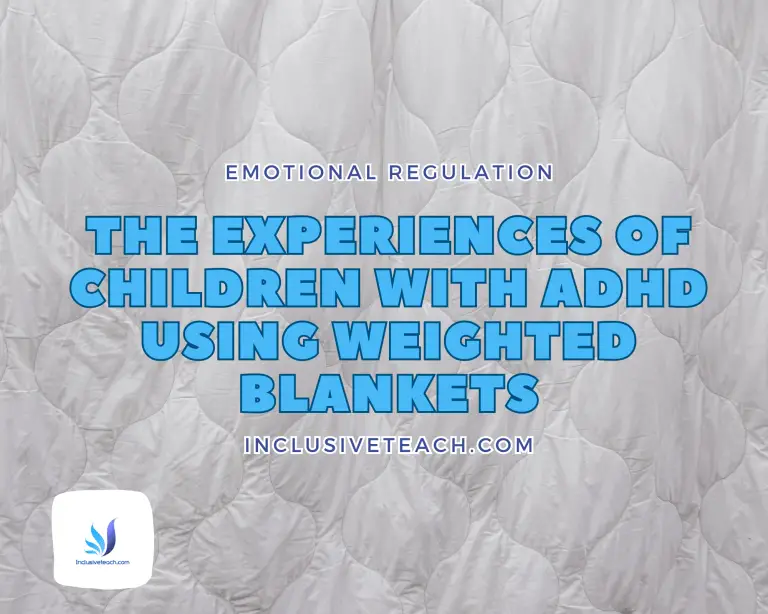

2 Comments